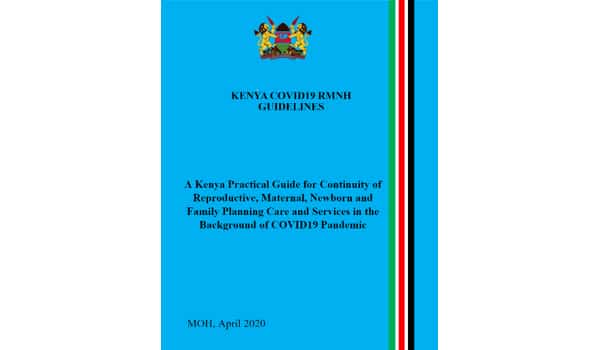
This is a comprehensive and well thought out guide with more than 20 pages covering services for pregnancy, delivery and the post-partum period, breastfeeding, all aspects of contraceptive service delivery and emergency contraception, andsexual and gender-based violence (SGBV) with related services.In the Forward, the Ag. Director General for Health, Dr Patrick Amoth, describes all of these as “essential healthcare services for all in need”.
There is one glaring absence: the guidelines do not mention, even once, access to safe, legal abortion nor even to post-abortion care. Not once. In spite of the fact that Kenya has guidelines for both safe abortion care and post-abortion care too. The one mention of the possibility of unwanted pregnancy – as an outcome of SGBV – says nothing about the consequent need for abortion. Hopefully, before version 2 is ready, some of the advisors who contributed will convince the Minister to make up this failing.
Still, it’s worth outlining what is included. One page 4, there is a whole section on telemedicine for reproductive and maternal health, which says that telephone calls are the preferred first contact; that during lockdowns and emergency restrictions evaluations and management by phone will be valid, there will be dedicated tele call centres in localities that will be manned by persons trained in reproductive health. Service providers are encouraged to see appropriate expertise from fellow colleagues when on phone consultations.
As regards pregnancy and delivery, the text says Covid-19 infection is not an indication for interference with the natural progression of pregnancy or mode of delivery. It discourages deliveries attended at home by non-skilled personnel and says skilled birth attendance in a well-equipped facility is particularly important at this time. It says antenatal clinic visits may be reduced to four face-to-face visits supplemented by four virtual/tele consultations. It reports that there is no evidence of Covid-19 transmission through breastfeeding.
As regards contraception, it recommends increasing the minimum stock level in service delivery points from the current four months’ store to six months. It recommends that all clients presenting for a method should be encouraged to use less skill-intensive methods, i.e. condoms, pills and patches, that are easy to deliver with minimal client-provider interaction. It also allows these three methods to be arranged by teleconsultation. It says all clients must wear a face mask and observe handwashing and social distancing at clinics. It recommends lengthening prescriptions for OCs to three months to reduce clinic visits, and to allow only phone-made appointments, staggered to keep visitor numbers low at any one time.
It restricts community-based distribution of contraceptive methods, including via pharmacies and drugstore outlets, to condoms and oral pill refills only. That’s pretty disappointing too. It says “unnecessary method switches” (undefined) are strongly discouraged. Oddly, it says family planning service delivery points should be open on a 24-hour basis. Interval sterilisations and routine vasectomies should be postponed.
FULL TEXT:Kenya Covid-19 RMNH, April 2020. Shared by Sarah Shaw, MSI London.



